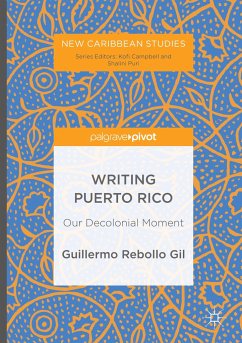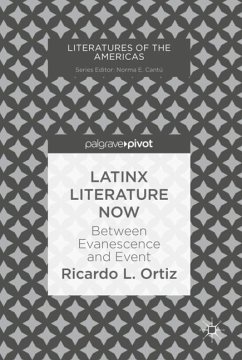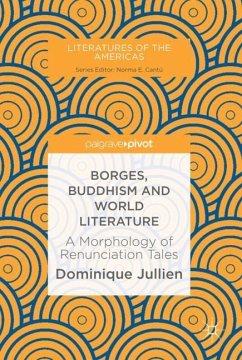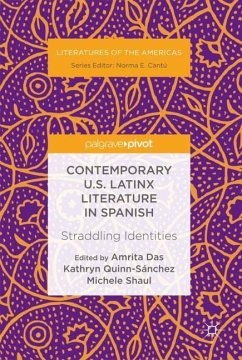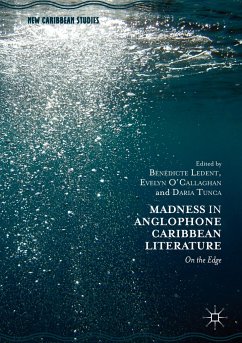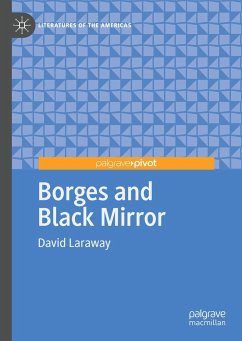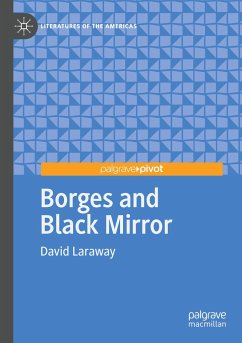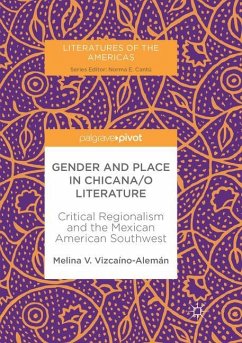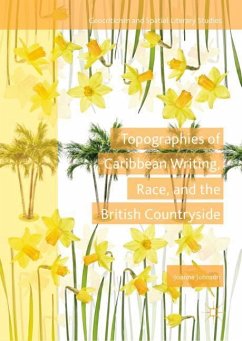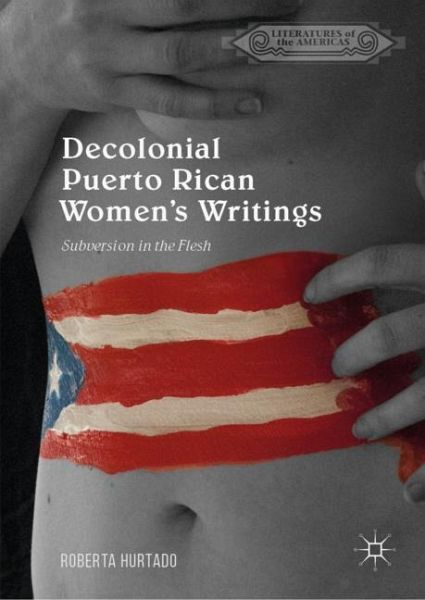
Decolonial Puerto Rican Women's Writings
Subversion in the Flesh

PAYBACK Punkte
27 °P sammeln!
This book explores representations of sentient-flesh - flesh that holds consciousness of being - in Puerto Rican women's literature. It considers how different literary devices can participate in the decolonization of the flesh as it is obfuscated by mappings of the 'body' from the Enlightenment era and colonial endeavors. Drawing on studies of cognitive development and epigenetics to identify how sentient-flesh creates knowledge of power and navigates methods of subversion for social justice, this book grapples with the question of how Puerto Rican women, living in the nation of their coloniz...
This book explores representations of sentient-flesh - flesh that holds consciousness of being - in Puerto Rican women's literature. It considers how different literary devices can participate in the decolonization of the flesh as it is obfuscated by mappings of the 'body' from the Enlightenment era and colonial endeavors. Drawing on studies of cognitive development and epigenetics to identify how sentient-flesh creates knowledge of power and navigates methods of subversion for social justice, this book grapples with the question of how Puerto Rican women, living in the nation of their colonizer, manifest an identity that exists beyond the scope of colonization. It makes the case for a change in perspective that illustrates the conceptual shift from survivors to thrivers to educators. To do so, it draws upon Cherríe Moraga and Gloria Anzaldúa's theory in the flesh; Iris Lopez's theories of trauma-knowledge; and María Lugones's concept of 'world travelers' to retain the corporeal flesh and physical location in Latinas' attempts to write subversion under U.S. colonization across racial, cultural, and ethnic boundaries, as well as the gendered-sexuality barriers identified by Emma Pérez. This project builds on their work to frame Latina literature within a new discussion of how corporeal, memory, and sentient experiences of identity must center sentient-flesh as the source of decolonial consciousness rather than relapsing into discourses of the 'body'.



